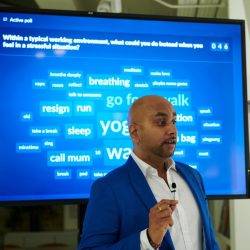November 14, 2018
Far too few people cycle to work despite promotion and investment in infrastructure
 In spite of the government investing £1.2 billion into cycling, new research claims that it is still only a few people who are cycling to work, with many citing nervousness about cycling in traffic as the reason. A survey of more than 7,600 UK adults published by Decathlon in the Decathlon Activity Index 2018, shows that only 7 percent of the nation is commuting to work with a bike. Despite cities including Manchester, Cambridge and London having made improvements to accommodate cycling, more than 1 in 4 (26 percent) still feel it is too dangerous to do so. This was followed by 21 percent who said they are still too scared to cycle the roads to work.
In spite of the government investing £1.2 billion into cycling, new research claims that it is still only a few people who are cycling to work, with many citing nervousness about cycling in traffic as the reason. A survey of more than 7,600 UK adults published by Decathlon in the Decathlon Activity Index 2018, shows that only 7 percent of the nation is commuting to work with a bike. Despite cities including Manchester, Cambridge and London having made improvements to accommodate cycling, more than 1 in 4 (26 percent) still feel it is too dangerous to do so. This was followed by 21 percent who said they are still too scared to cycle the roads to work.













 Over half of home workers say they appreciate the benefits that home working offers but nearly a quarter complain of loneliness too, a new survey from BHSF claims. When asked how working from home makes them feel, the top three responses were: free (50 percent), in control (47 percent) and calm (46 percent). However, a significant number of those surveyed chose more negative words to describe their feelings. Just over a quarter (26 percent) said that working from home made them feel remote, 24 percent felt isolated and 21 percent lonely.
Over half of home workers say they appreciate the benefits that home working offers but nearly a quarter complain of loneliness too, a new survey from BHSF claims. When asked how working from home makes them feel, the top three responses were: free (50 percent), in control (47 percent) and calm (46 percent). However, a significant number of those surveyed chose more negative words to describe their feelings. Just over a quarter (26 percent) said that working from home made them feel remote, 24 percent felt isolated and 21 percent lonely. 




















November 8, 2018
Your relationship with your boss may be playing a role in your stress levels
by Martin Turner and Matthew Slater • Comment, Wellbeing
(more…)